Fighting Addiction
A reporting team from Pennsylvania traveled to Scotland to see how the country's addressing the drug crisis and what solutions — if any — are working to bring those lessons back to the U.S.

GLASGOW, Scotland — Casting a shadow over the nation’s life, Scotland has the highest number of drug deaths per capita in Europe.
Scotland has almost 60,000 people with a drug problem. That’s roughly 1% of its population.
Many locals say the number is higher.
According to Austin Smith, the Scottish Drugs Forum’s head of policy, practice and communication, the roots of the nation’s drug epidemic can be traced back to the 1980s, during a period of deindustrialization followed by economic and social impacts — the effects of which can be seen today. The Scottish Drugs Forum serves as a national resource on the epidemic, working with many groups.
In the decades after World War II, the heavy industries that drove the British Empire — shipbuilding, coal, steel, textiles and more — collapsed. Scotland was a crucial part of that network. Government support for workers dried up in the 1980s.
As unemployment rates rose, many filled the void with drinking, drugs and fighting. In 2013, Scotland’s Chief Medical Officer blamed the nation’s poor health on the deindustrialization period.
As the country grapples with the consequences of substance abuse, a complex interplay of social, economic and health care factors contribute to the problem.
A 2022 report from National Records of Scotland linked drug death rates to deprivation, noting that people who live in the most disadvantaged areas of Scotland – places facing poverty and a range of other social ills – were 16 times more likely to die from drug misuse than those living in the least deprived areas.
Smith said the stigma facing people who use drugs also plays a crucial, though less visible role.
“When people aren't looking down on you, it at least allows you to, to get your head up, to act on your own volition, to empower yourself,” Smith said. “Because when you're (being stigmatized), that's exactly what you cannot do. You need help from others.”
Over the last several years, many organizations have turned to fighting the problem with harm reduction methods, attempting to lower drug deaths and the stigmatization of people who use drugs without taking a just-say-no approach to the crisis.
That approach is not without its critics. Despite 2022’s lowest recorded number of drug deaths in five years, many still question how harm reduction will play out in the long run. Can it end the crisis, or even keep the marginalized groups it’s serving alive?
The intricacies of the crisis are magnified by the unusual political landscape that Scotland finds itself in: a country ultimately governed by the United Kingdom’s parliament in Westminster.
A small team of Penn State student journalists and faculty traveled to Glasgow last November, hosted by the University of Strathclyde. The Penn State team examined how Scottish health care professionals, advocates and activists are attacking the drug crisis here – offering women more support, introducing drug consumption rooms, pondering drug decriminalization.
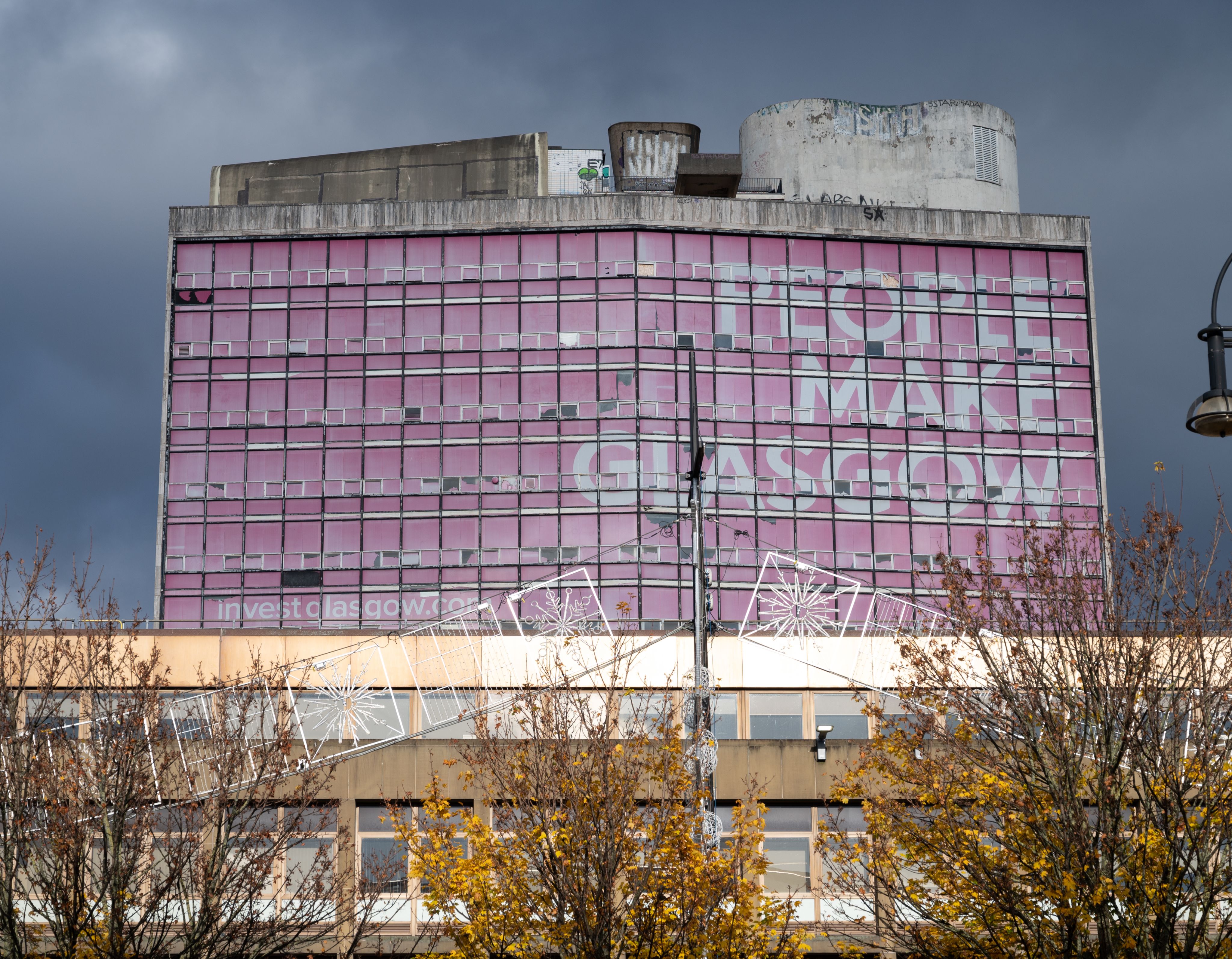


What the team found, broadly speaking, was an entrenched, generational problem that does not lend itself to easy answers or sound bites.
It also sought answers that might offer clues as to how to handle a crisis larger in drug-related death rates but 3,300 miles away — in Pennsylvania.
What the team found:
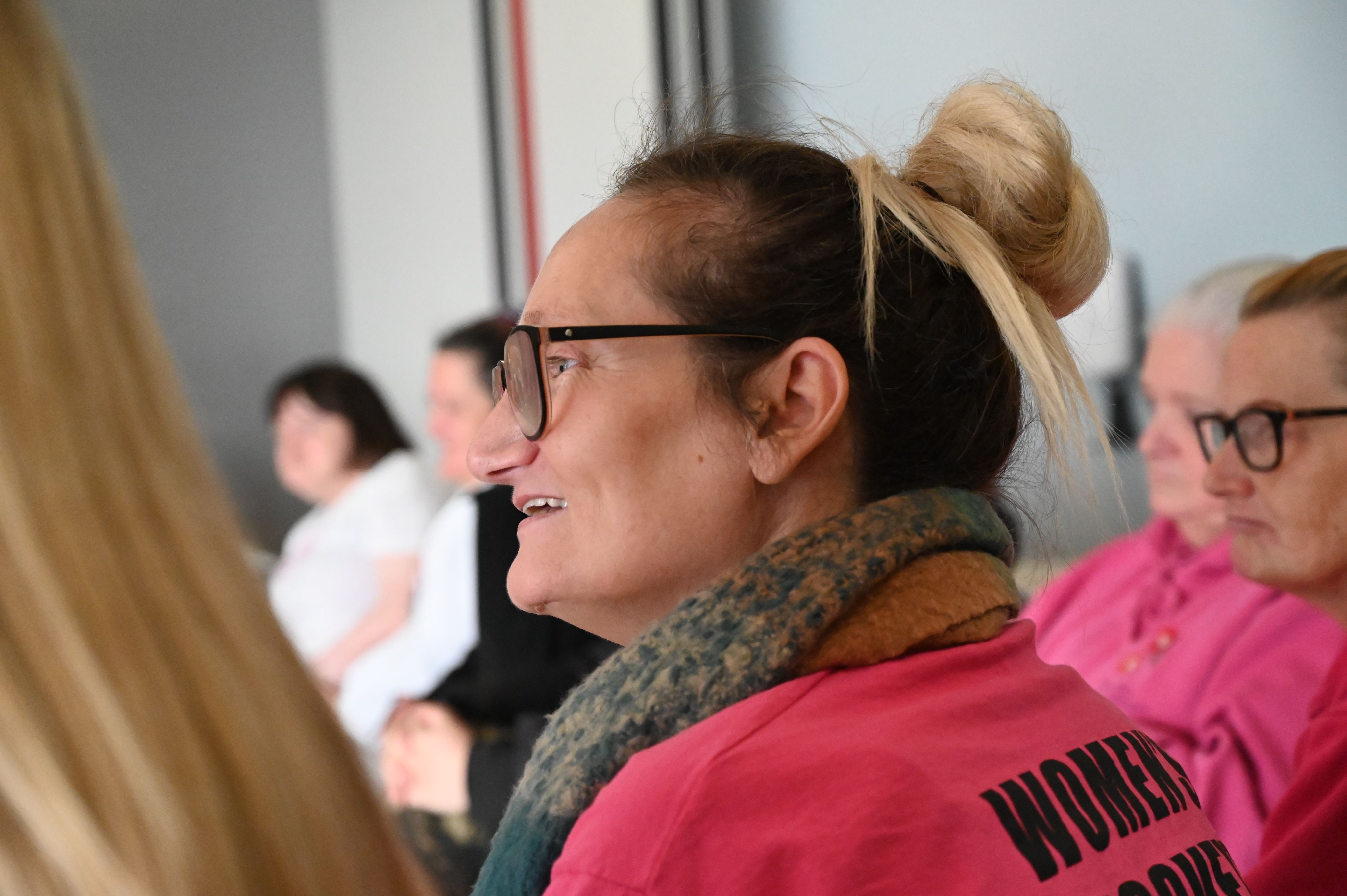
Breaking the Cycle
Various recovery initiatives in Scotland's largest city aim to tackle the drug crisis with support and compassion for the most vulnerable population on the streets: women.
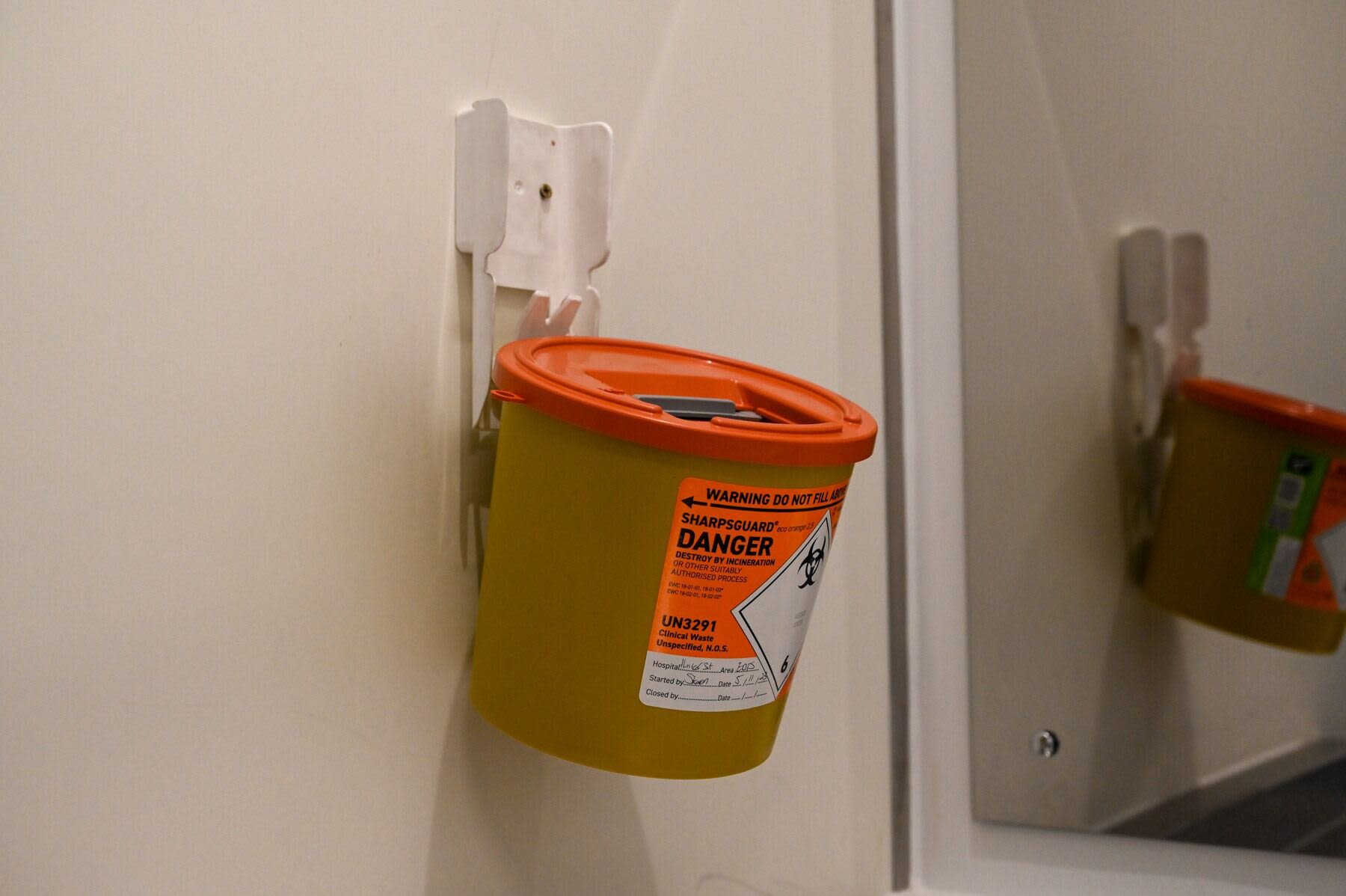
Safer Spaces
The United Kingdom's first drug consumption room is set to open in 2024 in an attempt to provide the people who use drugs with a safer environment to take them.

New Perspectives
Despite the Scottish government's intent to decriminalize the possession of drugs for personal use last summer, the country still doesn't have control over drug laws in its own territory.

'Desensitized' State
With drug overdose deaths in Pennsylvania reaching alarming rates, harm reduction organizations try to increase advocacy and support for Pennsylvanians who use drugs.
"If you had a magic wand..."
During the week of reporting in Glasgow, the team spoke to a variety of academics, politicians, medical specialists, campaigners and community workers all working to support and provide resources to those on the streets struggling with substance abuse. The team asked each of them three questions: what they wish more people would understand about the drug crisis, what they wish they could change — if they had a magic wand — and what gives them hope working in this field. (Videos by Anjelica Rubin)
Anastacia Ryan
Researcher at Glasgow University and chair on the board for Recovering Justice, a group that advocates for decriminalization of people who use drugs.
Hannah Boyle
Women's development lead for Simon Community Scotland's new women's center, the Connect Hub, set to open this year.
Sharon Caven
Volunteer with the women's recovery cafe managed by North East Recovery Community, she leads the weekly support group discussion alongside other volunteers.
Dr. Saket Priyadarshi
Associate medical director at NHS Greater Glasgow and Clyde, who. will lead the U.K.'s first drug consumption room.
Matt Smith
Professor of health history at the University of Strathclyde, he looks at Universal Basic Income as a preventive mental health policy.
Gillian Mackay
Member of the Scottish Parliament since 2021, she's part of the Scottish Green Party and is the spokesperson for health and social care.
Olivia Conner
Women's development worker at Simon Community Scotland, she is part of the team steering the development of the new women's center set to open in Glasgow in 2024.
Claire McGregor
Mother, grandmother and a steering group member for Simon Community Scotland, she also works with Homeless Network Scotland.
Austin Smith
Head of policy, practice and communication at Scottish Drugs Forum, an umbrella group for organizations working on drug policy.
More faces and sights from Glasgow:

The Glasgow Stock Exchange Building stands next to the Tron Church. Photo by Anjelica Rubin
The Glasgow Stock Exchange Building stands next to the Tron Church. Photo by Anjelica Rubin

Pigeons fly in front of the Glasgow City Chambers building. Photo by Olivia Estright
Pigeons fly in front of the Glasgow City Chambers building. Photo by Olivia Estright
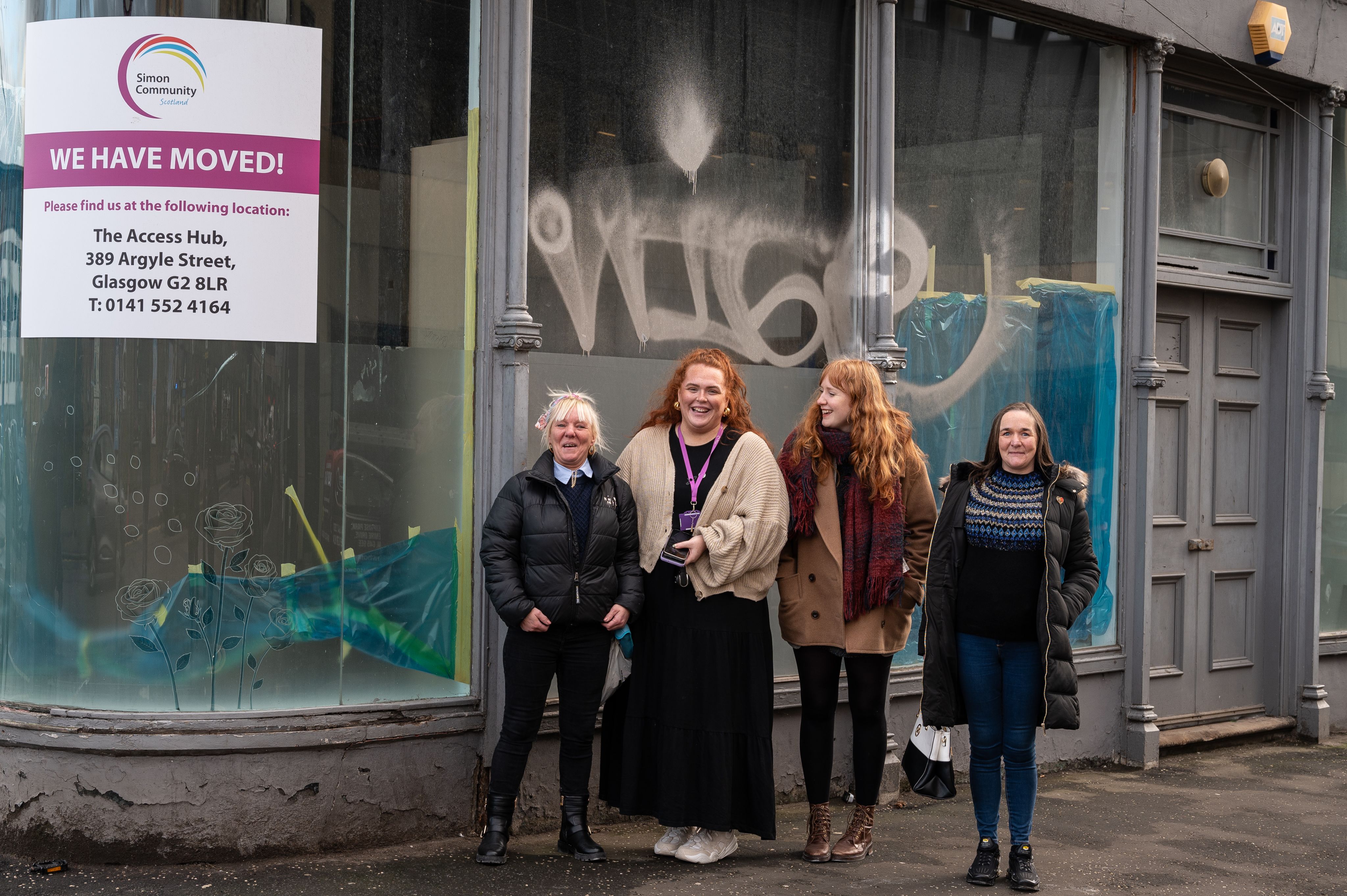
Members of the Simon Community Scotland Connect Hub's steering group stand outside the new location. Photo by Olivia Estright
Members of the Simon Community Scotland Connect Hub's steering group stand outside the new location. Photo by Olivia Estright

Two passersby walk by tents down a side alley in downtown Glasgow. Photo by Anjelica Rubin
Two passersby walk by tents down a side alley in downtown Glasgow. Photo by Anjelica Rubin

A National Health Service sign marks a pharmacy in Glasgow. Photo by Anjelica Rubin
A National Health Service sign marks a pharmacy in Glasgow. Photo by Anjelica Rubin

An entrance sign to the University of Glasgow faces University Avenue. Photo by Olivia Estright
An entrance sign to the University of Glasgow faces University Avenue. Photo by Olivia Estright

A sign of the University of Strathclyde.
A sign of the University of Strathclyde.
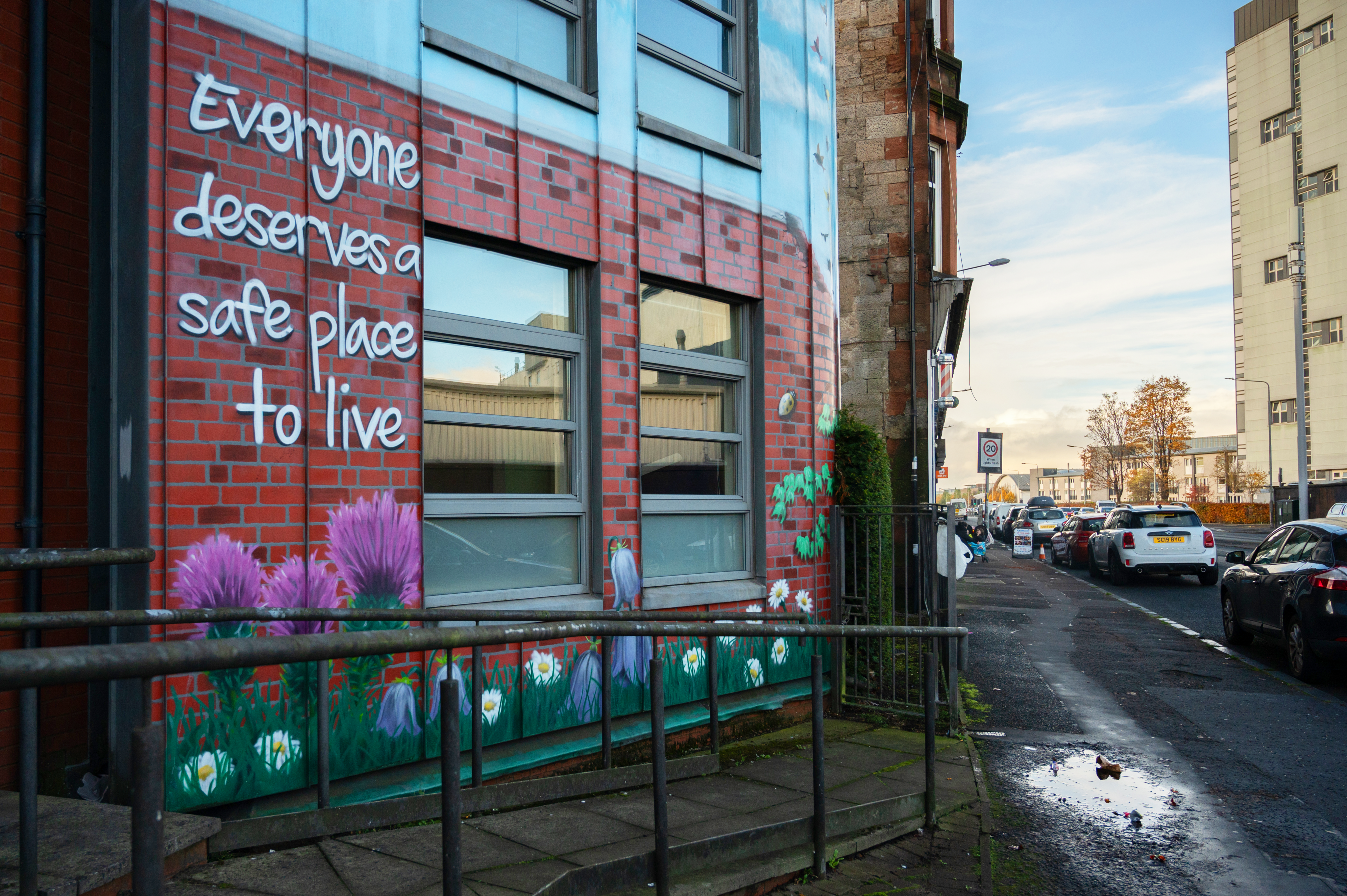
"Everyone deserves a safe place to live" mural greets people before entering Simon Community Scotland's headquarters. Photo by Olivia Estright
"Everyone deserves a safe place to live" mural greets people before entering Simon Community Scotland's headquarters. Photo by Olivia Estright
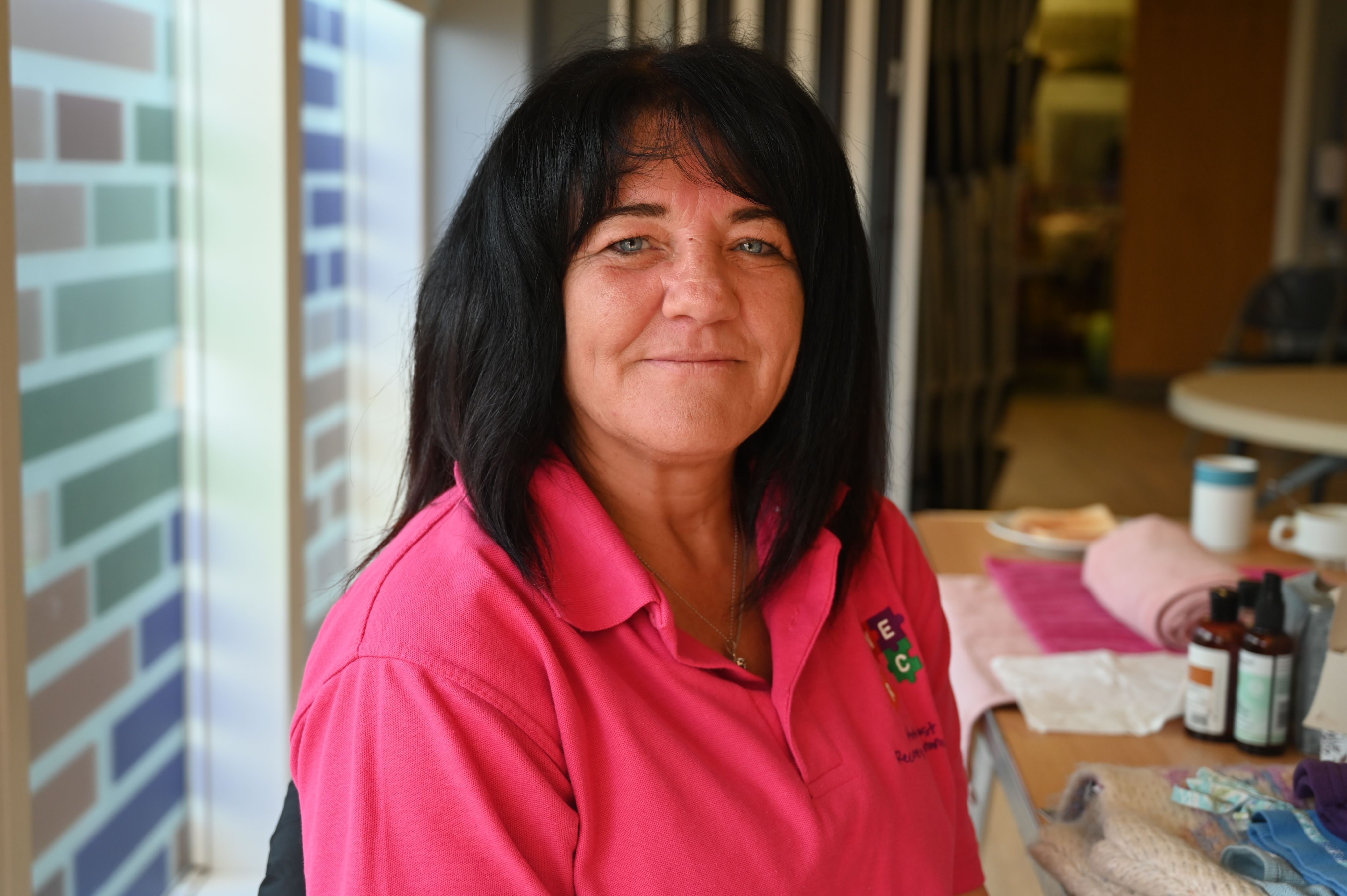
A North East Recovery Community volunteer at the weekly women's recovery café. Photo by Anjelica Rubin
A North East Recovery Community volunteer at the weekly women's recovery café. Photo by Anjelica Rubin

The sun shines in the morning at the Necropolis. Photo by Olivia Estright
The sun shines in the morning at the Necropolis. Photo by Olivia Estright

A busker performs in downtown Glasgow. Photo by Olivia Estright
A busker performs in downtown Glasgow. Photo by Olivia Estright

People walk through the cloisters at the University of Glasgow. Photo by Olivia Estright
People walk through the cloisters at the University of Glasgow. Photo by Olivia Estright